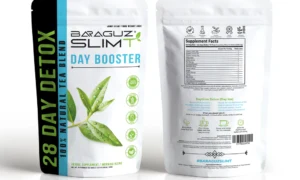When building an accessory dwelling unit (adu) in the bay area, choosing the right construction materials is key for durability, sustainability, and maintaining the main home’s aesthetics. Whether you plan to build an attached or detached adu, the materials you use will impact functionality and maintenance costs for years to come. In this guide, we’ll break down popular ADU builders Bay Area material choices and considerations around resilience, eco-friendliness, noise insulation, appearance, and more.
Structural Frame Materials
The structural “bones” of your adu serve as the foundation for the rest of the building components. Common framing materials include:
- Wood – A classic choice valued for its strength, insulation properties, and cost-effectiveness. Cedar and redwood offer natural durability.
- Steel – Long-lasting and sustainable. Light steel framing is popular for efficiency. Can lack noise insulation. Higher costs.
- Concrete – Extremely durable but higher carbon emissions in production. Best for fire resistance and sound dampening. Adds weight.
Our recommendation: Choose responsibly-sourced wood for most backyard detached adu projects. Include supplementary insulation to aid temperature and noise control between the main home.
Exterior Surface Materials
The outward-facing materials provide essential protection from the elements while also presenting the adu’s curb appeal. Top options include:
- Wood – Versatile for many exteriors. Needs regular upkeep. Use durable species or opt for composites for less maintenance.
- Brick/stone – Beautiful, natural styles blend well with many main homes. Higher costs but extremely durable and low-maintenance.
- Fiber cement – Mimics wood, stucco and masonry but doesn’t rot or burn. 30-50 year lifespan.
- Vinyl – Budget-friendly and long-lasting. Lacks aesthetic quality for some homeowners.
Our recommendation: Use site-appropriate natural materials that complement your main home’s existing exterior, balanced with low-maintenance, weather-resistant surfaces.
Roofing Materials
Your adu’s roof endures regular exposure to sun, rain, wind and other elements. Material choice significantly impacts durability:
- Asphalt shingles – Ubiquitous. Cost-effective with a 20-30 year lifespan. Limit fire risk with Class A fire-rated varieties.
- Wood shakes/shingles – Beautiful but requires heavy maintenance every 10-15 years to avoid rot and pests.
- Concrete tile – Heavyweight tiles last 50+ years. Excellent durability and Spanish style. Higher costs.
- Metal – Lightweight, durable option lasting 40+ years. Susceptible to dents from hail/falling branches. Beware condensation risks.
Our recommendation:Opt for Class A fire-rated asphalt shingles in jurisdictions where fire safety is a concern. Pre-finished metal can suit modern adu aesthetics, if installed properly.
Insulation Materials
Proper insulation regulates interior temperatures, reduces noise transmission, and cuts energy costs. Recommended materials include:
- Fiberglass batts – Inexpensive, effective for normal temperature insulation needs between wall studs. Lacks sound dampening.
- Mineral wool – Made from natural materials like basalt or recycled slag. Offers fire resistance plus temperature and sound control.
- Spray foam – Excellent insulation all seasons. Forms a seal against air leakage far superior to batts. Higher costs.
Our recommendation: Use unfaced fiberglass batts for minimum code compliance, or upgrade to denser mineral wool for better acoustics between the main home and adu.
Flooring Materials
Adu flooring endures heavy daily foot traffic. Lifespan, ease of cleaning, comfort and cost play roles in the decision process.
- Vinyl plank – Affordable, waterproof and easy to install. Large variety of wood/tile looks. Not the highest durability.
- Laminate – Mimics wood or stone looks with good durability and value. Avoid water exposure.
- Tile – Hard-wearing and eco-friendly natural option. Costlier but lasts 50+ years with proper installation.
- Hardwood – Beautiful material that develops a patina over time. Requires careful construction considerations.
Our recommendation: Laminate or vinyl plank floors suit most adu budgets while performing better under rentals or high traffic than carpet or hardwood. Low-VOC luxury vinyl allows eco-friendly elements at affordable prices.
Final Considerations
Building sustainably brings environmental benefits and often long-term cost savings. Be sure to research and vet the sustainability of different manufacturers and product lines as you select finishes. Reclaimed, recycled, FSC-certified and natural materials make excellent choices. Smart, eco-conscious material selection allows you to build a legal adu that looks beautiful, functions efficiently, and lasts for generations while respecting the planet.











